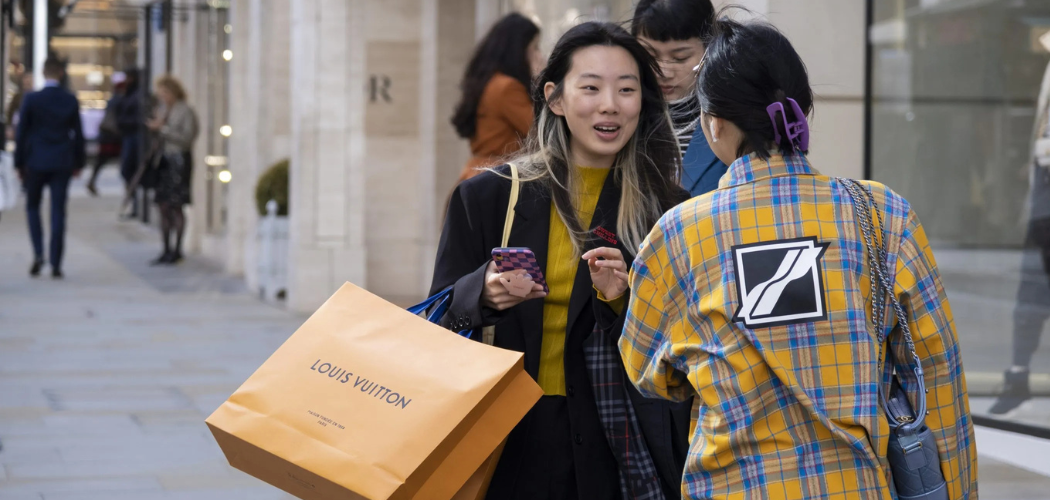Luxury’s new power players aren’t chasing logos. They’re demanding values.
It is dangerous to describe Gen Z – maybe any generational age group – with a broad brush. There are nuances among the group and behaviors seem to change each time we review new market research.
Here are some data points from current research that paint a varied picture of Gen Z preferences on customer loyalty programs, technology and personal data:
- 48% of Gen Z join programs via mobile apps — the highest of any segment.
- They are enrolling at lower rates - just 65% of Gen Z and 70% of Millennials participate, compared to nearly 90% of older travelers.
- Only 11% of Gen Z are “very comfortable” sharing data, versus 31% ages 25-44.
- 40% of Gen Z travelers choose destinations based on film/TV, shows like Squid Game.
Now we have a new set of data showing that Gen Z – maybe the next generation of luxury buyers - is rewriting the rules of status. According to Kantar, 69% of Gen Z luxury consumers in the US prioritize environmental responsibility, and two-thirds say they’re concerned about greenwashing.
This research from Aurelien and Kantar reveals that 69% of Gen Z luxury buyers prioritize environmental conscience and are willing to reject brands that fall short.
Even more telling, 66% say they’re concerned about greenwashing, pushing high-end labels to prove their sustainability claims with transparency, traceability, and tangible action.
Once defined by exclusivity, the luxury market in the US is now being reshaped by authenticity. For Gen Z, craftsmanship and conscience are inseparable: a “Made in Italy” tag means little without proof of ethical sourcing, responsible production, or long-term durability.
Sustainability as the New Status Symbol
In America, younger luxury consumers are increasingly motivated by purpose over prestige. They want to invest in brands that mirror their personal ethics, not just their aesthetic. This shift has transformed sustainability from a corporate checkbox into a status symbol in its own right.
How Luxury Brands Are Responding to Gen Z’s Sustainability Demands
- Gucci – “Circular Hub” Initiative:
Launched to promote circular fashion, this program focuses on designing for reuse, recycling materials, and minimizing waste across the brand’s production chain.
- Prada – Re-Nylon Line:
Prada reimagined one of its core materials, replacing virgin nylon with regenerated ECONYL® fiber made from ocean plastics and textile waste, proving heritage and innovation can coexist.
- Aurélien – Smart Luxury Approach:
The Dutch-Italian label emphasizes timeless design and craftsmanship using durable, sustainably sourced suede and cashmere from small Italian workshops, creating longevity over trend cycles.
- Burberry – Carbon Neutral and Traceable:
Burberry achieved carbon neutrality in its operations and is expanding product traceability, helping consumers understand the origin and impact of each item.
- Stella McCartney – The Sustainability Pioneer:
A longtime leader in ethical fashion, Stella McCartney continues to push innovation with vegan materials, bio-based textiles, and circular design practices that influence the wider luxury sector.
Transparency Over Trend
The US market shows a growing preference for transparency reports, recycled materials, and traceable supply chains. According to McKinsey, nearly 60% of Gen Z luxury buyers research a brand’s sustainability credentials before purchase.
Brands embracing open communication: publishing carbon footprints, disclosing sourcing practices, or offering repair programs, are winning trust where glossy campaigns no longer suffice.
“The luxury of the future isn’t about more, but about better,” says Roza Francken from Aurelien. “Today’s consumer values integrity over image. They want to know who made it, how long it will last, and what it stands for.”
Actionable Takeaways for US Luxury Brands
- Prioritize traceability: Offer product passports that track sourcing and production.
- Highlight longevity: Market craftsmanship and repairability as eco-luxury assets.
- Be transparent: Replace vague “eco” claims with measurable impact data.
- Engage authentically: Feature real artisans, materials, and processes in campaigns.
- Educate, don’t preach: Show sustainability as an extension of quality and innovation.
“Luxury is experiencing a cultural reset. For Gen Z, sustainability is a marker of intelligence, identity, and discernment. This generation grew up with climate anxiety and social transparency; they can spot greenwashing instantly.
They want fewer, better things: timeless pieces with lasting value and traceable origins. This aligns perfectly with the original spirit of luxury: craftsmanship, durability, and pride in creation.
American brands that merge transparency with timeless design will thrive. Those clinging to outdated notions of prestige or overproduction will fade. Sustainability isn’t a side story anymore. It is the story. It defines modern desirability and will determine the next era of luxury consumption,” says Style Expert, Roza Francken from Aurelien.
About Roza Francken
Roza Francken is a style and marketing expert with expertise in strategy, content, and brand storytelling. She blends data-driven insights with creativity to deliver campaigns that build authentic connections. Passionate about community-focused marketing, Roza helps brands grow visibility while staying aligned with evolving consumer values.
About Aurélien
Aurélien is a luxury brand offering footwear, apparel, and leather goods crafted in Italy. Known for timeless design, premium materials like cashmere and suede, and sustainable production, Aurélien embodies “Smart Luxury”: subtle elegance with enduring quality, available online and in leading international retailers.


